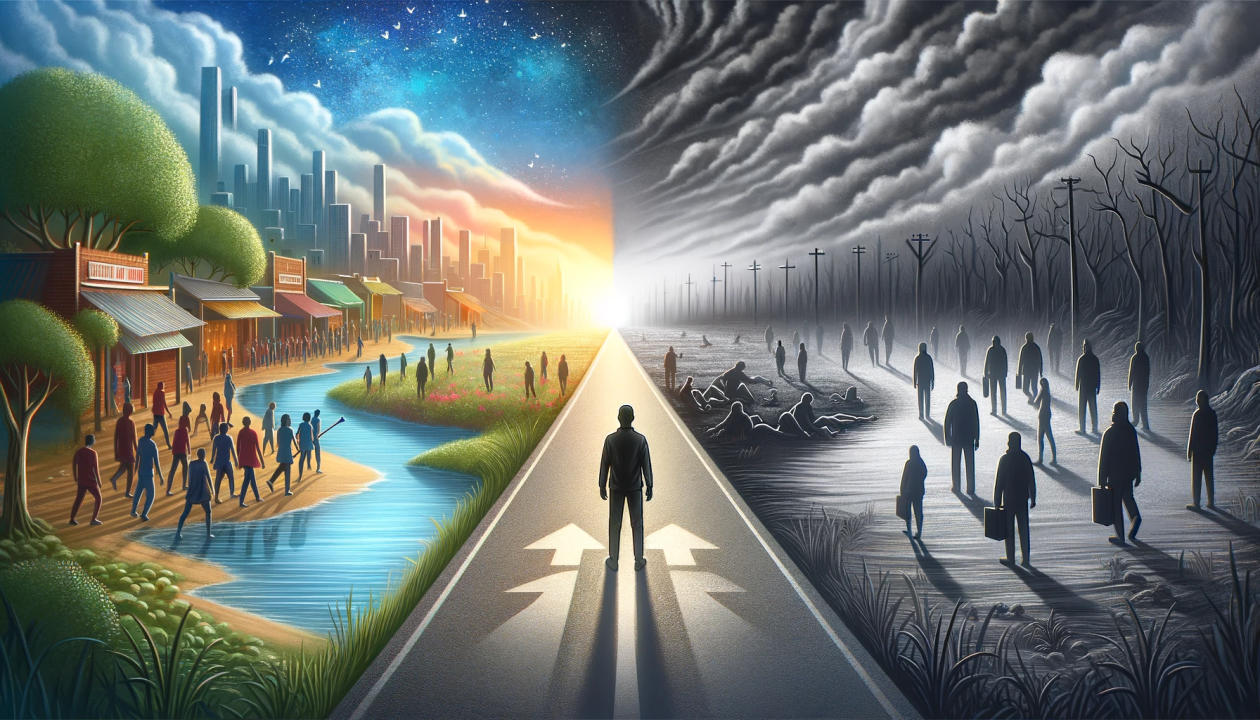
Awakening Action: The Impact of Inaction in a World of Distress
In our modern era, a continuous stream of distressing news bombards us daily. From conflicts across the globe to injustices in our neighbourhoods, the relentless tide of negative information can leave us feeling overwhelmed and powerless. But what happens when we witness wrongdoing and feel unable to act? What impact does this have on us, and how can we turn this tide towards positive action?
The haunting poem "The Hangman" by Maurice Ogden serves as a powerful metaphor for the consequences of inaction. It tells the story of a hangman who builds a scaffold in a town, executing a citizen each day while the others remain silent, believing they are safe. This allegory starkly illustrates how inaction in the face of injustice harms not only those directly affected but also erodes the moral fabric of the entire community.
This leads us to an important Zen koan: “If you cannot find the truth right where you are, where else do you expect to find it?” This koan urges us to look within and question the true reasons for our inaction. Are we guided by fear, apathy, or a sense of helplessness? Understanding these underlying reasons is the first step toward transformative action.
The Impact of Inaction
Continual exposure to distressing news without the ability or willingness to act can lead to a range of psychological effects. It can cause heightened anxiety, a sense of helplessness, and even desensitization to the suffering of others. This inaction, often born from a feeling of powerlessness, can also lead to guilt, shame, and a diminished sense of self-efficacy.
Remedial Actions for the Individual
Physical Action to Remedy the Situation: Start small. Look for ways you can make a difference in your immediate environment. This could be as simple as helping a neighbour in need or volunteering for a local cause. Taking tangible steps, no matter how small, can break the cycle of helplessness and empower you to take on larger challenges.
Verbal Assistance or Condemnation: Use your voice. Speak out against injustice and wrongdoing. This doesn't necessarily mean confrontation. It can be through writing, peaceful protest, or simply starting conversations within your community. Your voice can be a powerful tool in raising awareness and fostering change.
Detesting Injustice in Heart and Mind: When physical or verbal action isn’t possible, start with your mindset. Reject apathy and cultivate compassion. Educate yourself about the issues and reflect on how you can contribute to solutions, even in small ways. This mental shift is crucial in preparing yourself for future action.
Creating a Ripple of Change
Our response to the world's distress can be a catalyst for personal and communal transformation. By understanding the psychological impact of inaction, confronting the reasons behind our passivity, and taking even small steps toward change, we can create ripples that extend far beyond our immediate reach. This journey begins with the recognition that inaction not only impacts the world around us but also diminishes our own spirit and potential.
Remember, the world changes with our response to it. Let's choose action, compassion, and engagement as our guiding principles in this ever-evolving world.
#Palestine #Israel #Ukraine #Russia #Syria #Yemen